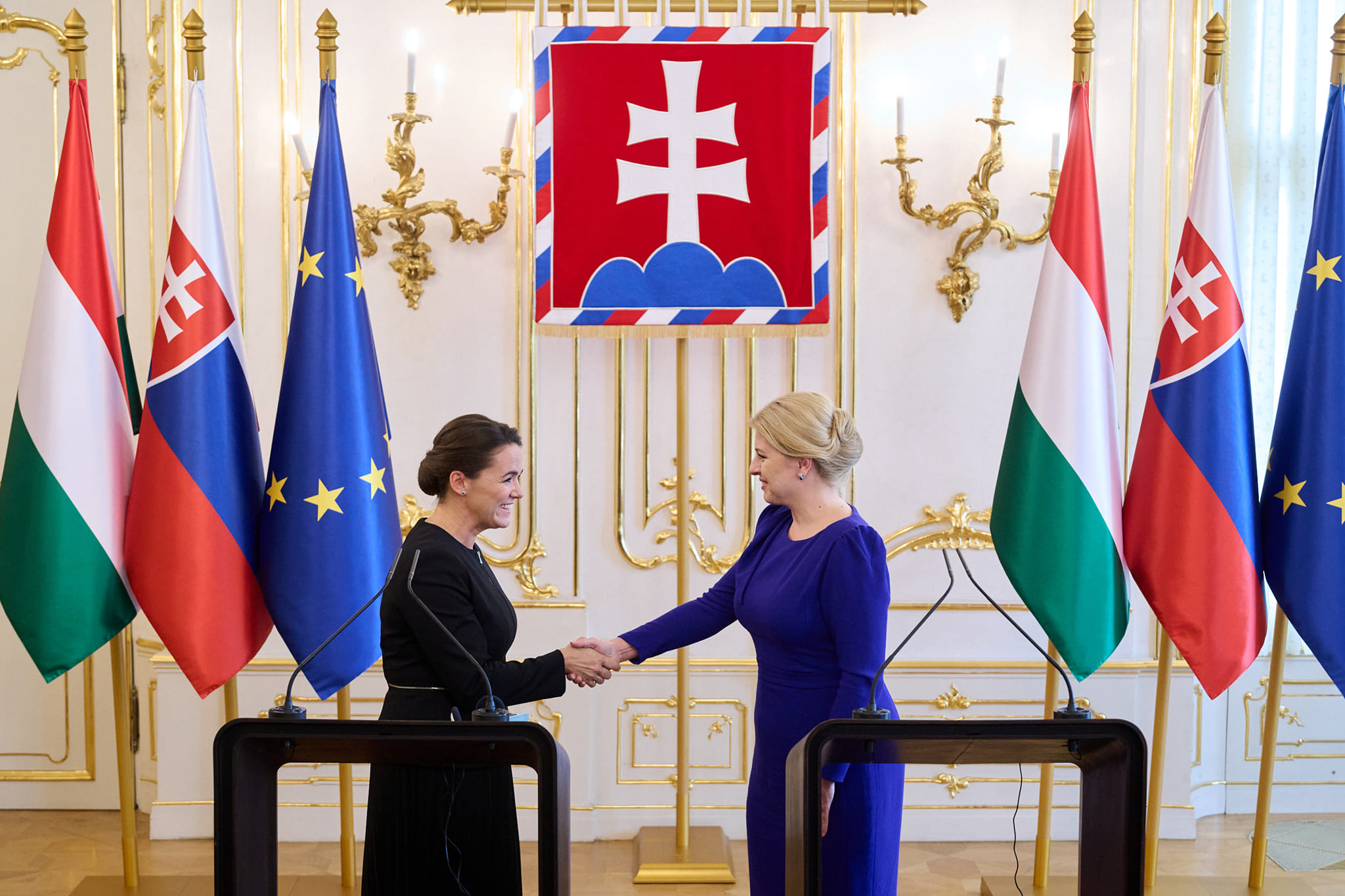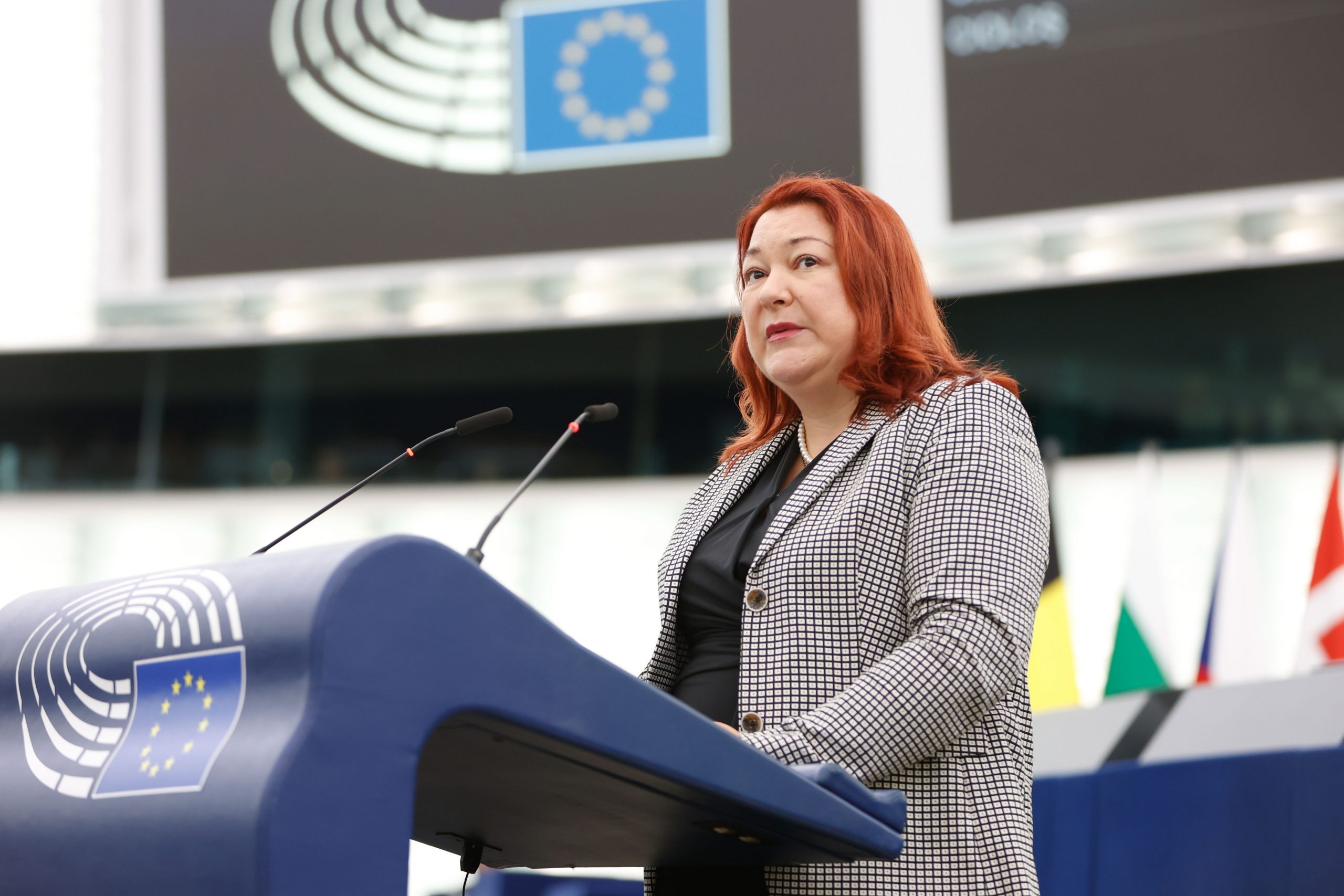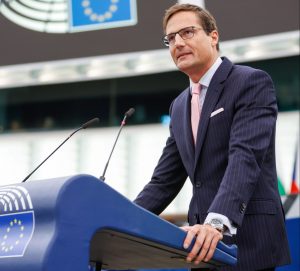
The Hungarian head of state held talks with her Slovak counterpart in Bratislava.Continue reading

Fidesz MEP Andrea Bocskor criticized the EU sanctions in the European Parliament’s debate, while Jobbik’s Márton Gyöngyösi said they are essential but not sufficient.
Hungarian politicians have addressed the European Parliament’s plenary debate on “Russia’s escalation of its war of aggression against Ukraine” in Strasbourg on Wednesday morning.
Andrea Bocskor, MEP of the governing Fidesz recalled, her party’s delegation “condemned and condemns Russian aggression, the annexation of Ukrainian territories and war crimes”. “We have stood by Ukraine from the very beginning, we support Ukraine’s territorial integrity and we do not accept the results of the Russian pseudo-referenda,” said the politician, who herself belongs to the Hungarian national minority in Transcarpathia.
Andrea Bocskor stressed that “in the largest humanitarian aid program in Hungary’s history, we have already taken in more than one million refugees from Ukraine”. “We are interested in peace based on respect for Ukraine’s sovereignty and territorial integrity,” she underlined.
The MEP said it was “unworthy and unacceptable to link a strong and united political stance in favor of Ukraine, in solidarity with the Ukrainian people, with the practical issue of immediate and full energy sanctions against Russia, which has provoked sharp disputes and has a divisive impact on the EU”.
 According to Márton Gyöngyösi, MEP of the nationalist Jobbik party, “the war in Ukraine has triggered exemplary European unity but it has also shown that Europe is powerless”, despite its armies, volume of defense capacities, and defense industry. He said that “sanctions are essential to limit Russian aggression but they are certainly not sufficient to win a war”. Gyöngyösi stressed that it is high time to realize the risks of external dependence in the fields of energy and defense. He asked the Commission how they are planning to protect European citizens from the escalating conflict.
According to Márton Gyöngyösi, MEP of the nationalist Jobbik party, “the war in Ukraine has triggered exemplary European unity but it has also shown that Europe is powerless”, despite its armies, volume of defense capacities, and defense industry. He said that “sanctions are essential to limit Russian aggression but they are certainly not sufficient to win a war”. Gyöngyösi stressed that it is high time to realize the risks of external dependence in the fields of energy and defense. He asked the Commission how they are planning to protect European citizens from the escalating conflict.
Photos via the European Parliament